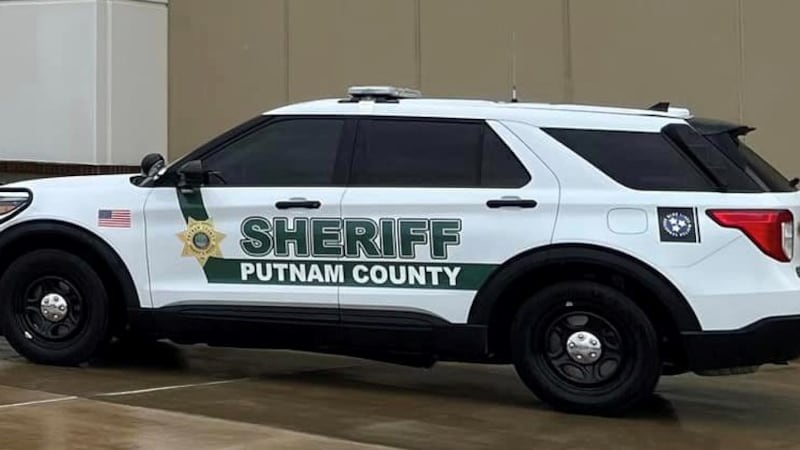Officer, mental health clinician teams in Nashville show up less than half of the time they’re requested
Examination of response times from Partners in Care show they can’t keep up with demand.
NASHVILLE, Tenn. (WSMV) - On October 23, 2022, Kim Lively was at the desperation point.
Her son, Treondis Farmer, Jr. was once again acting dangerously paranoid. For the fourth time in two months, she called Davidson County’s mobile crisis line and was transferred to 911.
“I’m not a psychiatrist, somebody has to get this boy some help,” Lively can be heard saying in the 911 call. “We need to get help before he hurts somebody, or he hurts himself.”
While the calls to the mobile crisis line are not recorded, Lively said she made it clear that she wanted a mental health clinician to accompany the police officer.
In partnership with Metro Nashville police, the Mental Health Cooperative created Partners in Care, which pairs a trained civilian clinician with a police officer to respond to emergency calls.
In another recorded call to the mobile crisis line, a family member of Farmer can be heard asking for a clinician, stating, “Are you guys coming with the mobile crisis?”
“Yeah, I can have somebody come by and check on him,” the 911 operator states.
But Lively said none of the specialized teams ever arrived, only police officers who said they had no mental health training.
“The crisis (line) people told me every time, ‘Oh, we’re coming out,’” Lively said. “They never came with police. Not one time,” Lively said.
911 records show that even workers at the mobile crisis line ask dispatchers specifically for crisis intervention teams, also known as “CIT,” officers, who are trained specifically in mental health crises.
“I’m with the Davidson County mobile crisis team, what we would ideally like to happen is to see our north CIT folks be involved in this,” the mobile crisis team worker says in the call.
According to 911 records obtained by WSMV4 Investigates, dispatchers looked for CIT officers or the Partners in Care, but none were available.
“We were just trying so hard,” said Farmer’s aunt, who asked not to be identified. “And me personally, I knew that something was going to happen. I knew that if he didn’t help them, then he was going to die. And he did.”
Lively said instead of being evaluated by a mental health expert, Farmer was arrested and taken to jail. When he was eventually released, Farmer ultimately walked into traffic and was killed.
“He’s young, he didn’t even get to have a life,” Lively said. Following Farmer’s death, WSMV4 Investigates requested responses from the Partners in Care program from the city’s Emergency Communications department.
Since its inception on November 23, 2021, till Feb 27, 2024, Partners in Care were requested 7,439 times through dispatch.
According to the data from Emergency Communications, the teams responded 3,422 times, less than half of the time they were requested.
“I feel like if the crisis people had come, talk to him, it would have been better,” said Carolyn Lively, Farmer’s grandmother.
WSMV4 Investigates took our findings to Michael Randolph, the director of co-response services at the Mental Health Cooperative, who helped develop the Partners in Care program.
Randolph said the program has already proven to be much in demand in the city, but the teams are only scheduled Monday through Friday, 6 a.m. to midnight.
“This is a symptom of not a local problem, not just a state problem, but a national problem,” Randolph said.
As of last week, the teams are now in place in every precinct in the city.
“I’m wondering what the message is for the people of the city. When they call - and they can’t get a Partners in Care team -- what are they supposed to do?” asked WSMV4 Investigates.
“We’re going to look at the data, look at when the calls are coming in, where are the calls we’re missing? Where do we need to expand next? It’s always a data-forward approach,” Randolph said.
Stephen Martini, director of Metro Emergency Communications, said all dispatchers can do is look to see if the teams are available, and if not, police officers will be sent, even if they lack the specific training.
“We recognize there’s a problem. What I would say instead that half don’t get it, I would celebrate is the 50 percent that do that two years ago would have only received an officer with no mental health clinicians,” Martini said.
The Farmer family, however, isn’t celebrating, as they continue to mourn the loss of their son.
“Mental health does not mean a crime. Mental health means you need help,” Lively said.
This story is part of an ongoing series examining the intersection of crime and mental health. If you have anything you’d like us to look into, please contact us here.
Copyright 2024 WSMV. All rights reserved.














